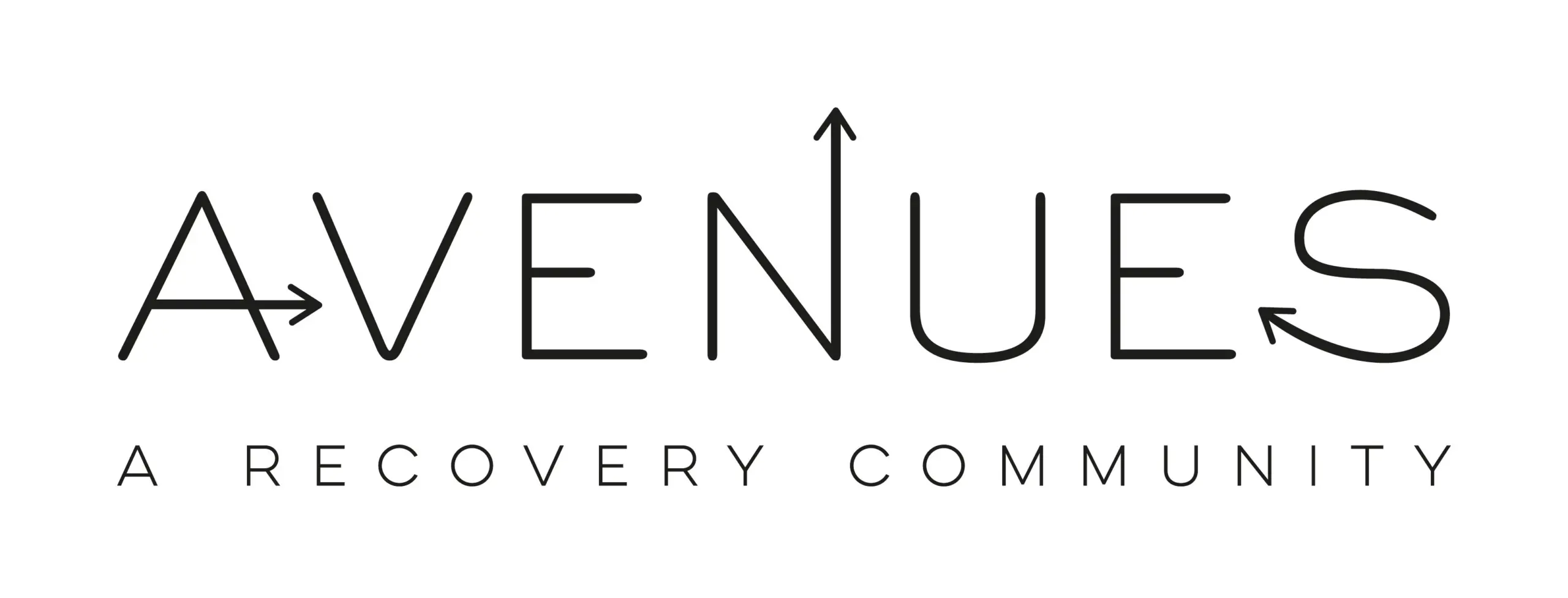This place is incredible !! It is difficult to find a place that is so transparent with everything that happens in your system. The place is Amazing, and its treatments are the best!
About Avenues Recovery Center at New England
Medically monitored detox is the safest way for a client to undergo detoxification and is usually the first step toward recovery. Clients stay in the facility so they can be watched and cared for by the medical team as they undergo detoxification. Medication may be used to help clients cope with withdrawal. Once their system is clean, the client continues to the next step in their treatment plan.
The residential program is a high level of care where clients live at the facility for the duration of treatment. The residence is monitored by staff 24 hours a day. The residence is a supportive community with restrictions in place to reduce the risk of relapse and minimize distractions.
Clients are given a daily schedule of recovery activities, including individual and group therapy and education groups. The multidisciplinary uses multiple types of therapy to provide clients with effective, individualized care. The ultimate goal of treatment is to give clients.
PHP is designed to help clients transition from inpatient to outpatient care. At this point, clients live at home and travel to the facility to receive treatment for five hours a day, five days a week. Clients participate in the same types of recovery programs in PHP as they would in outpatient.
IOP follows PHP and is very similar, but clients are in treatment for three to four hours a day, three days a week, during IOP. As clients continue to receive treatment, more emphasis is added on strengthening family relationships and securing or returning to work to better prepare clients for completing the course of treatment.
The outpatient program is the lowest level of care and is best considered a form of maintenance. Clients only visit the facility for one session every week.
Sober living homes can help clients ease back into their lives post treatment by giving them a community based living space to practice their recovery skills as they resume work, school, or other responsibilities. The sober living house is largely independent and less restrictive than inpatient care, but it’s still staff supervised, and clients are required to participate in group recovery meetings as well as provide for themselves and maintain the home.
Facility Overview
Latest Reviews
See AllRehab Score
Gallery
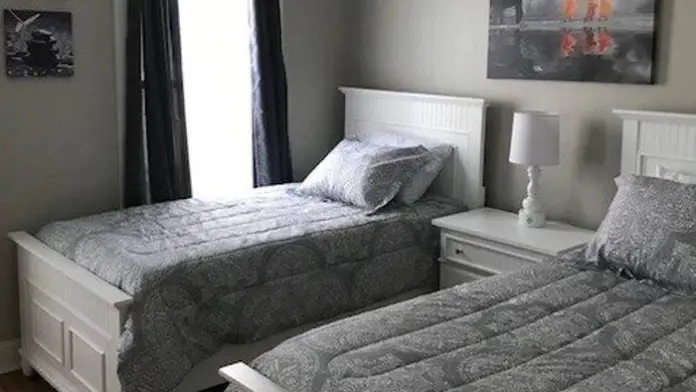
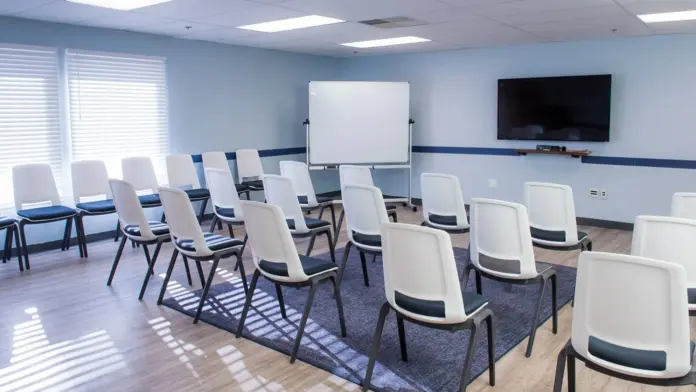
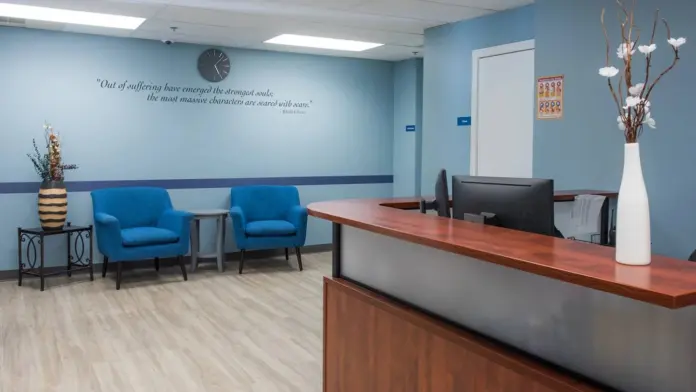
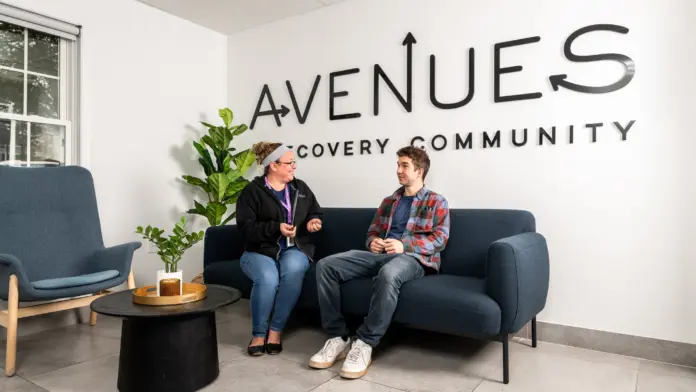
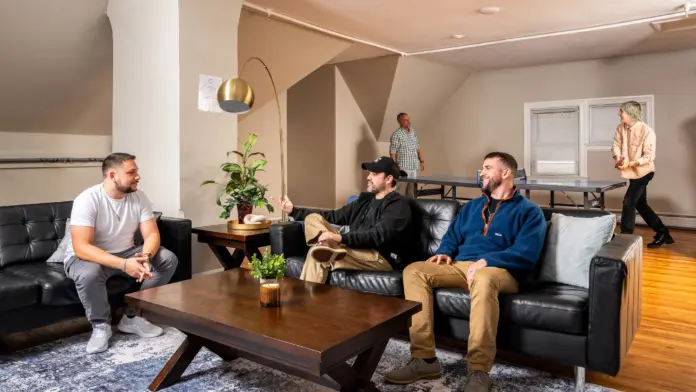
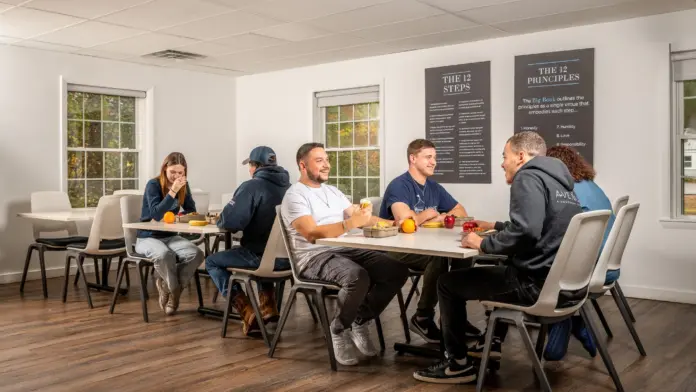
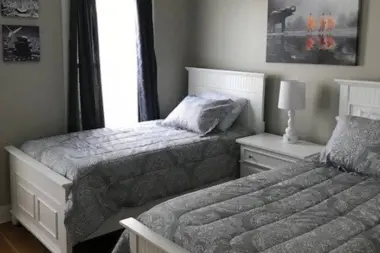
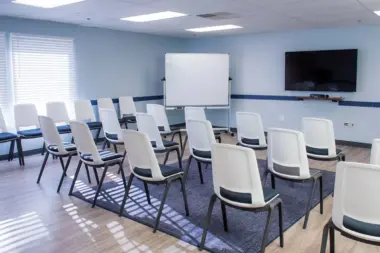
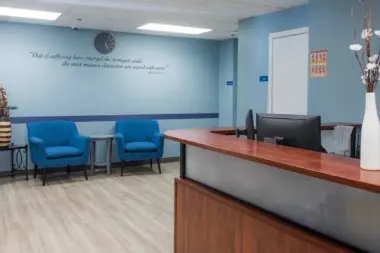
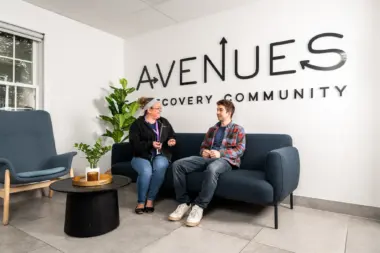
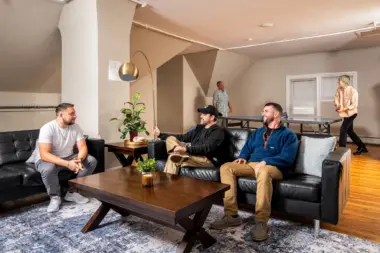
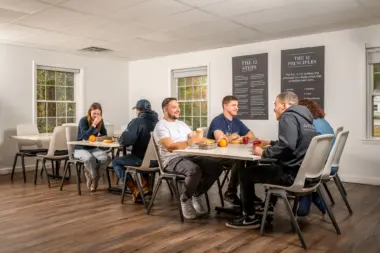
Accepted Insurance



Other Forms of Payment
Private insurance refers to any kind of healthcare coverage that isn't from the state or federal government. This includes individual and family plans offered by an employer or purchased from the Insurance Marketplace. Every plan will have different requirements and out of pocket costs so be sure to get the full details before you start treatment.
Self-pay involves paying for treatment out of your own pocket. You can use savings or credit, get a personal loan, or receive help from family and friends to fund your treatment. If you don't have insurance or your insurance plan doesn't cover a specific program, self-pay can help ensure you still get the care you need.
Sliding scale payments are based on a client's income and family size. The goal is to make treatment affordable to everyone. By taking these factors into account, addiction recovery care providers help ensure that your treatment does not become a financial burden to you or your family, eliminating one barrier to care.
Military members, veterans, and eligible dependents have access to specific insurance programs that help them get the care they need. TRICARE and VA insurance can help you access low cost or no cost addiction and mental health treatment. Programs that accept military insurance often have targeted treatment focused on the unique challenges military members, veterans, and their families face.
Medicaid is a state based program that helps lower-income individuals and families pay for healthcare. Medicaid covers addiction treatment so those enrolled can use their coverage to pay for rehab. When a program accepts Medicaid the client often pays very little or nothing out of their own pocket.
Addiction Treatments
Levels of Care
Outpatient Programs (OP) are for those seeking mental rehab or drug rehab, but who also stay at home every night. The main difference between outpatient treatment (OP) and intensive outpatient treatment (IOP) lies in the amount of hours the patient spends at the facility. Most of the time an outpatient program is designed for someone who has completed an inpatient stay and is looking to continue their growth in recovery. Outpatient is not meant to be the starting point, it is commonly referred to as aftercare.
Rehab aftercare programs provide continuing care for clients in an advanced phase of recovery, including those who have completed detox and intensive inpatient treatment. These clients typically have already engaged in many hours of addiction counseling and recovery education. Drug rehab aftercare supports clients in maintaining their sobriety at home, in the workplace, and in the community. Case managers and care teams advise clients on the resources they may need to promote their sustained sobriety.
They strongly encourage incorporating the 12 Steps into each individual treatment plan and actively participating in outside 12-step meetings of various recovery fellowships. These groups aid in providing a platform for sharing among peers and help solidify a support network in the early stages of recovery. Some of the more common 12 Step programs include: Alcoholics Anonymous (AA), Narcotics Anonymous (NA), Cocaine Anonymous (CA), Gamblers Anonymous (GA), and Sex and Love Addicts Anonymous (SLAA).
A partial hospitalization program (PHP) is a short-term form of intensive rehab, usually for those with acute symptoms that are hard to manage but don’t require 24-hour care. PHPs have structured programming (i.e. individual and/or group therapy), and usually meet 3-5 days a week for around 6 hours (i.e. 9am-3m). Some PHPs are residential (patients sleep on site) and some are not, so patients sleep at home. PHPs can last from 1-6 months, and some offer transportation and meals.
When you receive 24-hour clinical care in New Hampshire, you benefit from several advantages. You receive 24/7 medical care and support. You also detox in a setting that keeps you away from access to addictive substances. Additionally, doctors prescribed medications that reduce or eliminate withdrawal symptoms. Medical staff also provide other treatment to improve your physical and mental health.
Drug and alcohol addiction often takes a heavy toll on one's body. Over time, a physical dependence can develop, meaning the body physiologically needs the substance to function. Detox is the process of removing drugs and/or alcohol from the body, a process that can be lethal if mismanaged. Medical detox is done by licensed medical professionals who monitor vital signs and keep you safe, healthy, and as comfortable as possible as you go through detox and withdrawal.
Treatments
The goal of treatment for alcoholism is abstinence. Those with poor social support, poor motivation, or psychiatric disorders tend to relapse within a few years of treatment. For these people, success is measured by longer periods of abstinence, reduced use of alcohol, better health, and improved social functioning. Recovery and Maintenance are usually based on 12 step programs and AA meetings.
Treatment provided at drug rehab in New Hampshire prepares individuals to handle life stressors without using substances. Participants get the tools and support they need to maintain lifelong recovery.
Many of those suffering from addiction also suffer from mental or emotional illnesses like schizophrenia, bipolar disorder, depression, or anxiety disorders. Rehab and other substance abuse facilities treating those with a dual diagnosis or co-occurring disorder administer psychiatric treatment to address the person's mental health issue in addition to drug and alcohol rehabilitation.
A combined mental health and substance abuse rehab has the staff and resources available to handle individuals with both mental health and substance abuse issues. It can be challenging to determine where a specific symptom stems from (a mental health issue or an issue related to substance abuse), so mental health and substance abuse professionals are helpful in detangling symptoms and keeping treatment on track.
Opioid rehabs specialize in supporting those recovering from opioid addiction. They treat those suffering from addiction to illegal opioids like heroin, as well as prescription drugs like oxycodone. These centers typically combine both physical as well as mental and emotional support to help stop addiction. Physical support often includes medical detox and subsequent medical support (including medication), and mental support includes in-depth therapy to address the underlying causes of addiction.
Programs
Adult rehab programs include therapies tailored to each client's specific needs, goals, and recovery progress. They are tailored to the specific challenges adult clients may face, including family and work pressures and commitments. From inpatient and residential treatment to various levels of outpatient services, there are many options available. Some facilities also help adults work through co-occurring conditions, like anxiety, that can accompany addiction.
Clinical Services
Cognitive Behavioral Therapy (CBT) is a therapy modality that focuses on the relationship between one's thoughts, feelings, and behaviors. It is used to establish and allow for healthy responses to thoughts and feelings (instead of unhealthy responses, like using drugs or alcohol). CBT has been proven effective for recovering addicts of all kinds, and is used to strengthen a patient's own self-awareness and ability to self-regulate. CBT allows individuals to monitor their own emotional state, become more adept at communicating with others, and manage stress without needing to engage in substance abuse.
Dialectical behavior therapy is a form of talk therapy. While it's similar to cognitive behavioral therapy, it adds a focus on intense emotions. Its goal is to help you learn to manage difficult feelings and make positive changes.
People experience long term benefits from group therapy sessions that build a strong support network and create lasting connections that you can use throughout your recovery efforts. Building relationships within a group therapy environment helps enhance your social skills and reduce your stress levels, all contributing to promoting sobriety.
In individual therapy, a patient meets one-on-one with a trained psychologist or counselor. Therapy is a pivotal part of effective substance abuse treatment, as it often covers root causes of addiction, including challenges faced by the patient in their social, family, and work/school life.
For clients who aren't ready to commit to change, motivational interviewing can be a good option for rehab treatment in New Hampshire. This method of therapy helps clients become motivated to change. It aims to provide empathy, support, and empowerment so the client feels ready and able to make necessary changes.
Trauma therapy addresses traumatic incidents from a client's past that are likely affecting their present-day experience. Trauma is often one of the primary triggers and potential causes of addiction, and can stem from child sexual abuse, domestic violence, having a parent with a mental illness, losing one or both parents at a young age, teenage or adult sexual assault, or any number of other factors. The purpose of trauma therapy is to allow a patient to process trauma and move through and past it, with the help of trained and compassionate mental health professionals.
If you participate in couples therapy in New Hampshire, you can expect to attend an average of 12 sessions. These may include individual and joint sessions with the counselor. Therapy will likely focus on learning skills to resolve conflict and successfully manage relationship challenges.
EMDR is a therapeutic modality originally developed to help process trauma. In an EMDR session, a patient is prompted to undergo eye movements that mimic those of REM sleep. This is accomplished by watching a therapist's finger move back and forth across, or following a bar of light. The goal is repetitive sets of eye movements that help the brain reprocess memory, which can significantly reduce the intensity of remembered traumatic incidents. Associated memories can heal simultaneously, leaving patients significantly calmer, more stable, and more emotionally relaxed.
We understand that having a loved one in active addiction can be a traumatizing experience for the entire family. Often, the family is unfamiliar with the emotions that occur while a loved one is struggling with addiction and this can result in unintentionally prolonging unhealthy behaviors. Our goal is to bridge this gap between the client and the family in efforts to build an understanding of addiction and provide education on how to confront problems that arise and facilitate successful long-term recovery for individuals AND the family. Our detailed family program focuses on repairing family relations and addressing the wide range of issues and emotions that are experienced by the families of clients. It is very common for family members to feel resentment, disappointment, fear, anxiousness, and a lack of trust toward their loved one struggling with substance abuse. With the help of our addiction specialist counselors, we give both the client and family an open platform to discuss their emotions and feelings towards each other. Our counselors can pinpoint the root of problematic behaviors, allowing them to mold and change the thought processes that leads clients to choosing these behaviors.
Life skills trainings involve all the skills a person must have in order to function successfully in the world. These include time management, career guidance, money management, and effective communication. Truly successful addiction recovery is based on the ability to not only live substance-free, but to thrive. Life skills teaches the practical necessities of functioning in society, which sets clients up for success in life, and therefore sobriety.
Nutrition therapy, aka medical nutrition therapy (MNT), is a way of treating physical, emotional, and medical conditions through diet. Specific dietary plans are designed by professional nutritionists or registered dietitians, and patients follow them in order to positively affect their physical and mental health.
Creativity is inherently healing, and can help those in recovery express thoughts or feelings they might not otherwise be able to. Creative arts therapy can include music, poetry/writing, painting, sculpting, dance, theater, sandplay, and more. Unlike traditional art, the final product matters far less than the experience of creation and expression itself.
With experiential therapy, the clients at New England Recovery and Wellness learn how to approach challenges in a proactive manner rather than a reactive one. This allows for a deeper, more meaningful understanding of the impact their decisions may have not only on themselves, but also on others. The primary aim of their experiential therapy addiction program is to help clients begin making better choices – ones that align with their true values while allowing their needs to be met in a healthy manner.
If you've become physically dependent on nicotine, you can use nicotine replacement therapy in New Hampshire to quit smoking. Signs that you're dependent include smoking more than one pack per day, smoking to ease withdrawal symptoms, and smoking within five minutes of waking up.
Amenities
-
Private Transportation
-
Gym
-
Yoga Studio
-
Residential Setting
-
Private Rooms
Staff & Accreditations
Staff
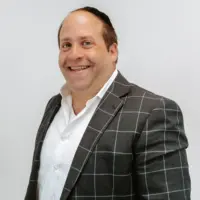
Saul Rotberg
REXD
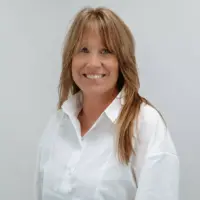
Traci McCarthy, MA, LCMHC
CD

Kris Lang
OM
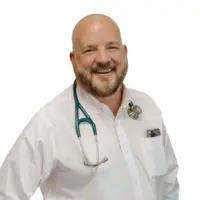
Kiley Hache, APRN
Nurse Practitione

Jamie Goodwin, MS
Primary Counselor

Spencer Meng
Primary Counselor

Amber Reagan, BA LADC
Primary Counselor

Jenny Dow
Primary Counselor
Accreditations

The Commission on Accreditation of Rehabilitation Facilities (CARF) is a non-profit organization that specifically accredits rehab organizations. Founded in 1966, CARF's, mission is to help service providers like rehab facilities maintain high standards of care.
CARF Accreditation: Yes

The Joint Commission, formerly known as JCAHO, is a nonprofit organization that accredits rehab organizations and programs. Founded in 1951, the Joint Commision's mission is to improve the quality of patient care and demonstrating the quality of patient care.
Joint Commission Accreditation: Yes
Accreditation Number: 604701
